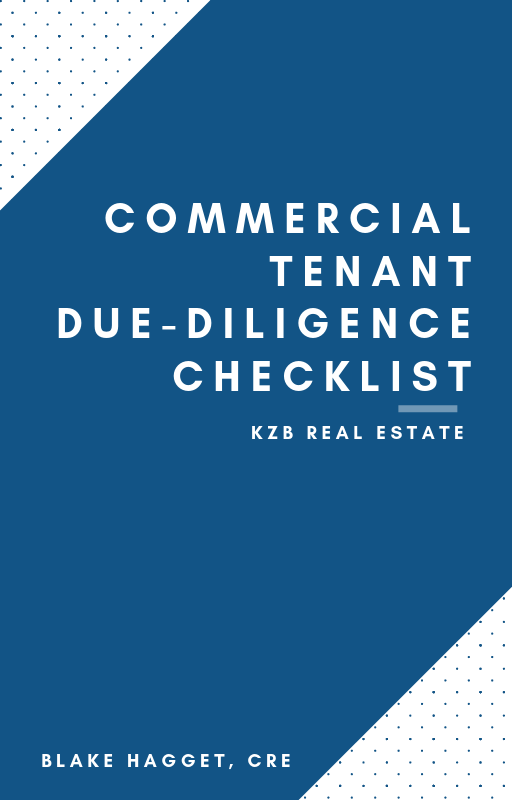Types of Commercial Real Estate Loans

Are you interested in commercial real estate in Boise? The area offers a number of income-producing properties that can generate wealth and ensure a steady monthly cash flow.
However, commercial real estate loans are risky, so it’s important for investors to understand the differences between the commercial real estate loan types before they take out a loan.
All loans are different in terms of interest rates, eligibility requirements, payment schedules, and down payment. For example, commercial real estate loans are much more complex than loans for buying a single-family home. As an investor, you need to take the time to research and acknowledge all financing options before you decide what fits your needs best. Hiring a commercial broker is also worth considering, as that can help you can ensure a high return on investment.
In this article, we’ll discuss ten commercial real estate financing offers, so you get a better idea of your options. But before we dive into the different types, let’s explain:
- How are commercial real estate loans structured
- How is a commercial loan different from a residential loan
Contact
How Are Commercial Real Estate Loans Structured?

Commercial real estate (CRE) is a term for a property that is used by businesses for generating income. Commercial real estate loans help business owners develop office space, purchase a new property, or renovate or refinance real estate debt. These types of loans require larger amounts of capital and are, in general, much riskier than residential loans, as compared to residential loans, commercial real estate loans include larger amounts of capital, higher interest rates, and usually have prepayment penalties.
Investopedia defines CRE loans as mortgages secured by a lien on a commercial property. These types of loans are usually taken out by corporations and businesses and are offered by banks, private investors, and pension funds.
Commercial real estate loans usually have shorter terms than residential loans, last between 5 and 20 years, and have longer amortization periods. Lenders calculate the risks of giving out a loan by checking the borrower’s creditworthiness and calculating financial ratios and the nature of the collateral.
How Is a Commercial Loan Different from a Residential Loan?
Commercial loans and residential loans operate with different types of properties.
Residential real estate refers to any space intended for habitation such as single homes, family buildings, duplexes, and condos. In contrast, commercial loans are used for office space, warehouses, retail and industrial properties and also multifamily units over 4 dwellings.
Residential loans are offered by most major banks and have low-interest rates. Plus, they have long amortization periods and most are paid over 30 years.
This is not the case with commercial loans, as they are offered only by local banks in most cases but also larger institution lenders will also evaluate the risks and rewards of these assets.
In general, commercial loans have higher interest rates than residential loans. To qualify for a residential loan, borrowers need to have a solid credit history, while commercial loans are more about how much income the property can generate.
Commercial Tennant Ebook
Traditional Commercial Mortgage
Traditional commercial mortgage loans are offered by banks, insurance companies, the SBA, and private investors and are used for purchasing land and property for business. These types of loans are similar to residential loans because the sum taken as a loan is secured against a property. It’s harder for business owners to qualify for this type of loan as they need to show excellent personal credit and a strong financial plan. Traditional commercial mortgages oblige the client to use 51% of the property for their own business if they are applying for an owner user loan and usually the rates are pretty low and you only need to put down between 10-15% if the financials of the company are strong.
SBA 7(a) Loan

The SBA 7(a) loan is a loan program offered by the Small Business Administration and designed to support start-ups and new entrepreneurs. The companies can use these loans for financing a variety of purposes including buying real estate and inventory, business expansion, and refinancing debts.
In order to be eligible for the SBA 7(a) loan, the company needs to be at least three years in business and the business owner must have an appropriate credit score of 680 or higher. The minimum dollar amount that business owners can loan is around $25,000, while the maximum is 5 million dollars.
This is the kind of loan where borrowers must use at least 51% of the property’s square footage for their own business.
SBA 504 Loan
The SBA 504 loan is long-term, fixed-rate financing that allows startups and businesses to purchase assets for renovation, expansion, and modernization. Note that to apply for the SBA 504, business owners must have a credit score of at least 680 and excellent financials. As in the case with SBA 7(a) loans, borrowers will need to use at least 51% of the property’s square footage for their own business.
Conduit/CMBS Loans

A conduit loan, also known as a CMBS loan, is a type of financing companies use to purchase commercial real estate. These types of loans are combined together with other commercial mortgages and sold on the secondary market.
Conduit loans are usually offered by commercial banks and investment banks. The main benefit of this type of financing are the fixed interest rates as well as the long amortization period. This type of contract usually requires the borrower to make a balloon payment at the end of the term.
Commercial Bridge Loans
Commercial bridge loans, or gup funding, is a type of financing applied to both residential and commercial properties. Companies can use this type of loan for real estate investment opportunities that are time-sensitive.
This type of loan allows business owners to get the funds immediately and seize the investment opportunity. For example, the business owner can take a bridge loan to buy new office spaces before the current company’s property is sold. The loan is secured by the company’s current property which means that the borrower bridges two commercial properties.
Soft Money Loans

Soft money loan is an umbrella term for traditional loans with a below-market interest rate. They have lower fees and are usually offered by banks.
To qualify for a soft money loan, entrepreneurs need to submit evidence that they possess 3-6 months’ worth of loan payments. Plus, they need to have a personal credit score of 580 or above. Business owners with high credit scores can benefit from this type of loan because it offers low-interest rates and a flexible repayment schedule.
Hard Money Loans
Hard money loans provide businesses with the opportunity to obtain short-term loans. These kinds of loans are usually offered by private investors and individuals and have shorter repayment schedules lasting from two weeks to approximately three years.
To obtain a hard money loan borrowers don’t need to demonstrate a solid credit history because, in the case of hard money loans, the property is the collateral. Hard money loans have higher interest rates than soft money loans, however, if the loan is repaid within the time-frame, business owners may not be affected by the high rates. If the borrower defaults, the property may be seized by the investors.
Mezzanine Loans

Mezzanine loans are high-risk loans suitable for companies with a good track record. This type of financing combines debt with equity, which basically means that the lender can gain equity on the existing company or purchase equity in the future.
One advantage of mezzanine loans is that they have flexible payment schedules and payment can also be made at the end of the loan. This gives the company the time to purchase new commercial properties, improve cash flow, and develop new projects. For example, a business can use a mezzanine loan as a bridge loan to improve or develop office space. After the project is completed, the mezzanine loan can be replaced by the first mortgage based on the higher value of the property.
On one hand, the lenders can benefit from mezzanine loans through gaining equity, which gives them a high return on investment. On the other hand, the lenders are at risk if the company goes bankrupt. In case of bankruptcy, the company’s assets are liquidated, but the senior debt holders are the first to get paid. That means that if there are no assets left after the first liquidation, the lender may lose the money.
Construction Loans
Real estate construction usually comes at a high cost which most businesses are not capable of paying upfront. But that’s when construction loans come in – usually obtained by companies that want to build new office space or expand their existing property. They can be used for the financing of materials and labor, property renovation, and land development.
Construction loans are offered by lenders who provide funds through the construction process. This means that businesses aren’t provided with the full amount of the loan in one lump sum, but instead, receive partial amounts of the loan as the construction hits milestones.
Blanket Loans

Blanket loans provide real estate investors with the opportunity to purchase several properties at once. Investors can either buy multiple properties simultaneously or consolidate existing mortgages into one single payment. This allows them to avoid the tedious tasks of managing multiple loans at the same time by having just one loan payment across all properties.
There is no limit to the number of properties that can be covered by a blanket loan. However, the properties must be in one state. Note that blanket loans have high rates. Additionally, blanket loans can make the process of selling just one property harder as all properties serve as collateral for the other. If the borrower defaults, the lender may seize all properties.
And with that, we wrap up our overview of the types of commercial real estate loans available in the US.
If you have any questions, don’t hesitate to contact our team at KZB Real Estate.


